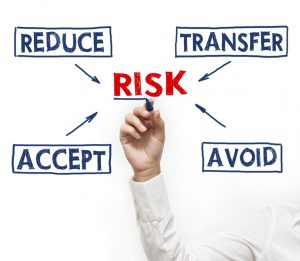Another Crisis Anniversary
 It’s been one heck of a year. Almost one year ago our crisis year began. From Brexit to Trump to Brazil this past year has been one unexpected event after another. How can a reasonable person invest through such chaos? If we look more closely, you’ll see there’s a way.
It’s been one heck of a year. Almost one year ago our crisis year began. From Brexit to Trump to Brazil this past year has been one unexpected event after another. How can a reasonable person invest through such chaos? If we look more closely, you’ll see there’s a way.
The Two Big Crises
The first headline crisis of the past year was the Brexit news on the morning of June 25th. In a countrywide popular vote the UK opted to leave the European Union. This was a shocker, undoing 60 years of diplomatic and political efforts. There was virtually no exit plan. Markets responded by plunging, except for gold and US Treasury bonds, which soared. One week later markets adjusted back to pre-Brexit levels. It was almost as if it never happened from a portfolio point of view.
The second, media-fueled crisis, was the night of November 8th, when it became clear that Donald Trump would be the next president of the United States. Another shocker that contradicted prior polling, another sharp market response. This time, markets adjusted overnight and by morning it was as if it had never happened from a portfolio point of view.
More Crises
Add to the crisis list these chaotic and confounding days: Inauguration Day on January 20th. The First 100 Days on April 30th. The head of the FBI is fired in May. The US pulls out of the Paris Climate Agreement in June. By the end of this week there will be two more potential Crisis Days, the election days in the UK and France.
What do these crises have in common? After brief, unsettling market swings, there is almost no lasting investment, market or portfolio impact. Markets react less and less with each crisis until they don’t react at all. Crisis investment fatigue quickly sets in. Fatigue may appear to solve the investment problem when the cycle begins again, spoiling careful investment plans. The media, the news, and the timing upset smart strategies.
Personal Impact Versus Portfolio Impact
Let’s be clear, I have just been talking about the investment impact of big, sudden and unexpected changes in the status quo. The personal impact can be quite different. For example, my friend’s daughter may have to leave the UK because of Brexit. The Paris Accord withdrawal has been felt as a disaster for one of my investment pro friends; he’s fighting back. Another investment friend is leaving private practice to join the Administration.
The personal impact can be vastly different than the portfolio impact. That makes sense — market prices are driven by the long-term perspective of millions of buyers and sellers, not how the crisis affects one individual. Markets, we’ve seen, can absorb more short-term static than any single person or family.
The Investment Voyage Through Crisis
Voyaging through crisis is a critical investment advisor skill. Ask your advisor how they learn, grow and stay grounded through investment crises. I do it by remembering and talking about the day I learned something new. I distinctly remember the day portfolio insurance died (1987), the day ETFs were born (1992), the day inflation peaked (1981) and the day I learned about market timing (2008). These landmark moments help me keep things in perspective and accept — if not always embrace — change. Talk to your professional about your crisis investment voyage and what you have learned. You may find that your investment experience improves. That has been our experience when conversations happen.
John Osbon – josbon@osboncapital.com
Weekly Articles by Osbon Capital Management:
"*" indicates required fields

